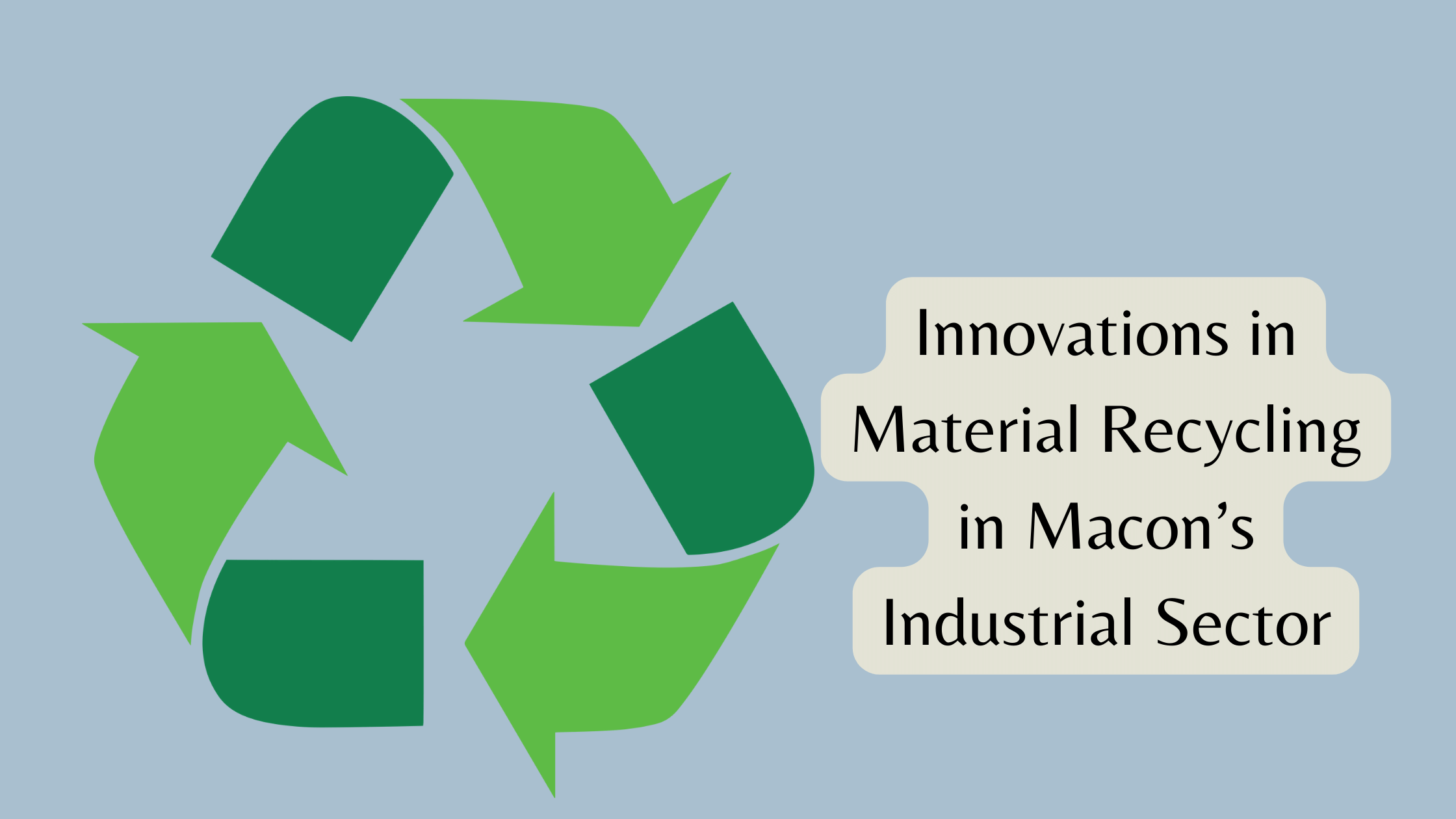
Macon, Georgia, stands at the forefront of ecological innovation, particularly industrial recycling. As industries worldwide grapple with demands for sustainability, Macon’s local businesses are pioneering new methods to ensure that material waste is disposed of, reused, and integrated into the production cycle. The strides here reflect a broader commitment to environmental responsibility, showcasing significant advancements in reducing industrial waste. For a detailed exploration, take a closer look at macon’s eco-friendly waste disposal – a closer look.
A New Era of Recycling Technologies
The industry has been the central vein of macro for a long time, especially in manufacturing and production as far back as the days of significant material waste, which ended up in landfills and was incinerated pitch. Though the topic has shifted today, thanks to recycling technologies, the narration is moving in the direction of environment and ecology efficiency.
Among the rest of the breakthroughs, the development of one sorting technology will be marked as one of the most important ones. This caused problems with traditional recycling as it was slow, the workers had to sort, which was labor-intensive, and sometimes the result needed to be more accurate. Novel optical interpreting systems are based on high-resolution cameras and machine learning algorithms that recognize and partition components at the minutiae level. With this technology, not only does the amount of materials that can be recycled grow, but the quality of recycled materials itself is also improved, which raises their market value and, consequently, makes them a profitable market product.
Through this Coalition, Macon’s industries have adopted chemical recycling techniques. This could mean shredded plastics into their chemical makeup at the molecular level, which could be reconstructed into a polymer backbone for new plastic products. Unlike mechanical recycling, which is used simply to transform the physical form of the materials, chemical recycling is infinite as it rejuvenates the life of the recycled plastics. It has proven valuable in that the breakthrough made in this technology is dealing with the plastic pollution problem, which has been known for its complicated nature to recycle.
Integrating Green Energy Solutions
In addition to the industrial sector working to design greener ways of material recycling, a mix of green power, such as wind and solar energy, is also growingly used to power these processes. The creation of recycling centers operating on renewable energy sources, including solar and wind, lowers the industrial carbon footprint that is made possible by the use of original fresh materials.
In the neighborhood, companies are trying to upgrade their current power stations with solar panels and small wind mills. This generates electricity itself and becomes an example for others in the field to follow. The plants actually recycle materials, but more often than not, they recycle energy through the process, which creates a genuinely sustainable production collaboration.
Challenges and Future Directions
However, some hurdles need to be overcome to capitalize on the outcomes mentioned above. The economy of scale for those advanced recycling technologies seemingly remains necessary because the high initial expenditure, considered by smaller-scale workshops, can be a barrier. Moreover, the market for recycled materials could be more stable, another factor preventing investments in infrastructural requirements.
Overcoming these challenges relies greatly on cooperation and the participation of public agencies and private firms. Governments could use Incentives and tax cuts to cover the initial money needed to buy new technology and, therefore, encourage more industries to adopt advanced recycling methods. Moreover, developing solid and sustained markets for used materials is another way to ensure that the industry is well-represented and the investors are motivated.
The bright aspect of the problem is educational and awareness campaigns. If the city focuses on this, people and industry leaders can be well-informed about the perks and necessity of recycling innovations. This can facilitate the repair and development in this sector.
Conclusion
Macon is undergoing a profound shift in its industrial sector, a shifting era in which materials recovery gets the spotlight it deserves from business leaders. This city’s breakthroughs are not only pushing the initiative of environmental sustainability but also ordering economic benefits via methods that include reduced costs and new market opportunities. The adoption of more complex recycling technologies, along with the implementation of renewable energy, will extend a complete look at the waste management problem.
It could be used to advocate for other locations and industries. Macon’s future will be very much affected by the green industrial future, and the green industrial future, in turn, will undoubtedly play a pivotal role in building it. Macon and the whole world could benefit from the industry’s predictable, environmentally friendly, and innovative nature. More and more companies are realizing this approach is possible, leading to change.